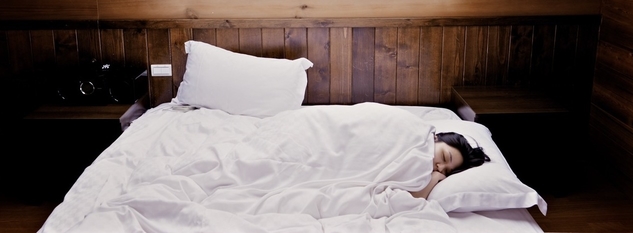Wellbeing Essentials: Sleep
- 14 May 2024
- Wellbeing and Mental Health
- Comments : 0
Wellbeing Essentials: Sleep
This is Part 2 of SAWT’s 6-part special “What Everybody Should Know About Wellbeing”.
Getting a good night’s sleep is vital to health. During sleep, our bodies perform essential detoxification, building, balancing and repair work, which helps to keep us healthy and fend off illness and disease.
Regular poor sleep puts you at risk of serious medical conditions, including obesity, heart disease and diabetes. It also shortens your life expectancy.
Most of us need around eight hours of good-quality sleep a night to function properly – but some need more, and some need less. What matters is that you find out how much sleep you need and then try to achieve it.
Good Sleep Habits
-
Daytime preparation
- Schedule social and domestic responsibilities around sleep
- Exercise during the day
- If you have trouble getting to sleep, try avoiding naps
-
Evening preparation
- Avoid caffeine, alcohol and nicotine for at least 2 hours before bed
- Do some light exercise
- Take a warm shower or bath
- Don’t go to bed too full or too hungry
- Write a To-do list before you go to bed: get it out of your head!
- Keep a notepad next to your bed, so if you experience ruminating thoughts, you can write them down
-
Preparing your bedroom
- Put down your phone! The blue light emitted from devices like phones and e-readers affects levels of the sleep-inducing hormone melatonin. At minimum, if your phone has the option, put it on night mode, which emits an orange light
- Keep your bedroom well-ventilated and around 18 degrees Celsius
- Block out light and noise
- Make sure your bed and pillows are comfortable
- Avoid unrelaxing activities before bed, e.g. computer games or paying bills
- If possible, go to bed at the same time every night and wake up at the same time in the morning
-
How to fall asleep
- Avoid alarm clock anxiety
- Use a relaxation technique such as meditation or mindfulness
- If you still can’t sleep, leave your bedroom and do something relaxing like reading in a dimly lit room
-
Sleeping during the day (besides following the advice above)
- Put a do not disturb sign on the door
- Turn off your phone
- Explain the need for quiet to your family/housemates
If you don’t currently exercise these habits, even introducing 1 per week for the next month should result in you getting a much higher quality of sleep and feeling all the better for it! Small steps!
SAWT PRO TIP: If you’d like to learn more about sleep, we highly recommend this book by Arianna Huffington: The Sleep Revolution
In The Sleep Revolution, Arianna shows how our cultural dismissal of sleep as time wasted compromises our health and our decision-making and undermines our work lives, our personal lives – and even our sex lives. She explores all the latest science on what exactly is going on while we sleep and dream. She takes on the dangerous sleeping pill industry and all the ways our addiction to technology disrupts our sleep. She also offers a range of recommendations and tips from leading scientists on how we can get better and more restorative sleep and harness its incredible power.
We LOVE this book!





